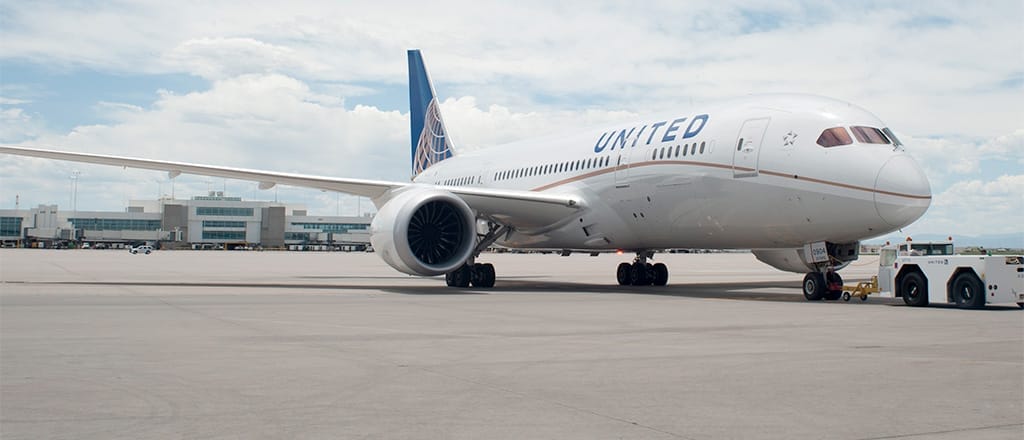The video of the United Airlines passenger who was recently dragged out of his seat screaming from an overbooked flight was seen around the world. Since then, the debate has centered around the practice of overbooking seats in the industry and the legal responses of airlines. But morality should have a place in corporate America, according to Father James Martin W82 (@JamesMartinSJ), a Jesuit priest, editor at large at America magazine, author of Jesus: A Pilgrimage and The Jesuit Guide to (Almost) Everything: A Spirituality for Real Life, and consultant to the Vatican’s Secretariat of Communications Office.
In this opinion piece, Martin argues that a capitalist system that leads to human degradation is inherently immoral. For companies to change, he writes, their measure of success cannot hinge entirely on their profitability but should take into account the common good and welfare of others. Only then will true change occur. (A previous version of this article originally appeared in America.)
Here is why United Airlines kicking off and countenancing the assault of a paying customer is a big deal: It helps to reveal how corporate America often puts rules before people and how capitalism often places profits before human dignity. (I am speaking not only as a Jesuit priest, but as a Wharton School graduate, someone who considers himself a capitalist and who has worked in corporate America for several years.)
Overbooking is a device that most airlines use to maximize their profits. Unfilled seats mean lost revenues. This means that some people will inevitably be bumped from flights. But in the airline’s economic calculus, this is deemed an acceptable trade-off. A customer’s inconvenience is subordinated to profits.
You can already see the inherent problem.
The passenger—a physician named David Dao whose family escaped Vietnam during the 1970s—had bought a ticket from United. So, as a consumer, Dao was justified in expecting that he would be able to use it. That is, as any Wharton grad knows, part of the essence of capitalism: a fair exchange of money for goods or services. But the airline decided they had “overbooked” when some airline employees needed last-minute seats on the flight. So they asked passengers who had already paid if they would be willing to relinquish their seats. They offered increasing levels of money to make it more palatable. Several took the offer.
“A toxic cocktail of capitalism and corporate culture led to a man being dragged along the floor.”
Not surprisingly, Dao did not want to leave. Why should he? He had paid for his seat and was anxious to reach his destination. As my business law professor would point out, the airline had also entered into a contract with him. And the argument that the airline had the right to eject him is, to me, fallacious. It was not any sort of emergency. No matter what the fine print said, Dao had a right to expect to fly that day.
Likewise, the argument that overbooking reduces the price of tickets, and therefore ends up actually helping the consumer, is also something of a dodge. This is because the goal of the corporation is not to reduce the price of tickets and provide savings for customers, but to maximize profits for shareholders. An airline reduces ticket prices to increase volume, which raises revenues. Airlines are not charities.
When Dao was unwilling to give up what he had paid for, he was forcibly removed from his seat by security officers, who ended up bloodying him and dragging him along the floor of the plane. In a press conference later that week, according to The New York Times, Dao’s lawyer “listed his client’s injuries: a broken nose, a concussion, two knocked-out teeth and sinus problems that may require reconstructive surgery.”
When we watch the video of the event something in us says, “That’s not right.” Pay attention to that feeling. It is our conscience speaking. That is what prompted the widespread outrage online—not simply the fact that people who have been bumped from flights share in the man’s frustration, but the immorality of a system that leads to a degradation of human dignity. If corporate rules and the laws of capitalism lead to this, then they are unjust rules and laws.
The ends show that the means are not justified.
Someone in authority—pilots, stewards, ground crew—might have realized that this was an assault on a person’s dignity. But no one stopped it. Why not? Not because they are bad people: They too probably looked on in horror. They did so because they have been conditioned to follow the rules.
Those rules said this: First, we may sometimes overbook because we want to maximize our profits. Second, we can eject someone because we have overbooked, or if we decide that we want those seats back, no matter what a person can reasonably expect, and no matter how much of an inconvenience this is. Third, and most tragically, human dignity will not get in the way of the rules. A toxic cocktail of capitalism and corporate culture led to a man being dragged along the floor.
That is why bland “nothing-to-see-here” defenses of the ills of corporate America and of the dictates of capitalism bother this capitalist and former corporate employee so much. They fail to see the victims of the system.
Is this a “first-world problem”? Yes, of course. Most people in the developing world could not afford a ticket on that flight. But it is very much a “whole world problem” because the victims of a system that places profits before all else are everywhere. The same economic calculus that says profits are the most important metric in decision-making leads to victims being dragged along the floor of an airplane and eking out an existence on the floor of a hovel in the slums of Nairobi. The privileging of profits over people leads to unjust wages, poor working conditions, the degradation of the environment and assaults on human dignity.
“As long as profits are seen to be the only measure of success, employees will subordinate everything—including compassion—to that goal.”
A day after the incident, Oscar Munoz, United’s chief executive, apologized for the treatment of the passenger, saying that “no one should ever be mistreated this way.” Agreed. He also said, tellingly, that employees “followed established procedures” and that he “emphatically” stood behind them.
What is the solution, then, to a system that gave rise to such treatment? To recognize that profits are not the sole measure of a good decision in the corporate world. To realize that human beings are more important than money, no matter how much a free-market economist might object. To act morally. And to respect human dignity.
How do companies do that? If they want to encourage employees to behave morally in stressful situations—of the kind that the United staff faced—how can they frame rules that encourage employees to express compassion rather than to suppress it? I believe the most essential thing is to admit that, despite what I was taught in Econ 101, profits cannot be the sole measure of a corporation’s success. And as long as profits are seen to be the only measure of success, employees will subordinate everything—including compassion—to that goal.
Once the common good and the dignity of each person are introduced into the equation, then such things as compassion, kindness, and care for the poor and the environment will come to be understood as values that are every bit as important as efficiency, aggressiveness and hard work. In other words, once you introduce another goal into the equation, then the priorities of the corporation and its employees shift a bit. And, incidentally, it makes for happier employees and a happier organization, because who wants to work for a hard-hearted company?
Of course, this approach may not work in every instance. Some companies and managers may be too blinded by the pursuit of profit to behave compassionately. In such situations, do governments have a role in requiring companies to follow management practices that encourage compassionate behavior in corporations? In other words, could regulations make companies act more morally?
I believe they could. This is what, in essence, government regulations about work hours, family leave and equal pay try to do—inject compassion into corporations and place human dignity at the forefront of a company’s operations. Limiting work hours, providing more generous family leave benefits and requiring equal pay for men and women are all ways of looking at people compassionately, respecting their dignity and essential human needs. There could be other ways, through government regulation, of ensuring that corporations consider not only the needs of their own employees, but also the ways that their businesses will affect the “common good,” that is, the community at large.
Thus, regulations caring for the environment, what Pope Francis calls our “common home,” are important. But in terms of the inner workings of the corporation, and whether people are treated compassionately on the job, I believe that change has to come from the top. If a CEO is kind, compassionate, and truly cares for the well-being of her or his employees—not just their economic well-being, but what we Jesuits like to call the “care of the whole person”—then these goals will naturally trickle down to all levels of management.
People naturally look for mentors in how to manage. If they see compassionate management, they will take their cues from this. This, to my mind, leads to a healthier organization, and also encourages people to think more compassionately about their customers, clients and the most important of moral goals: the common good.


























